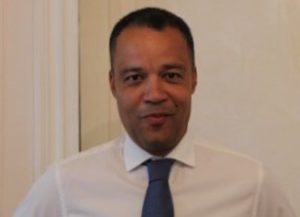By Christian Kazumba *.
Real tax havens for businesses! This is the way the current rumor or people who are not very well informed often present our sub-Saharan countries.
Six years spent on the continent, at managerial positions, taught me to take all the necessary steps in relation to what constitutes, according to my feedback, a totally preconceived idea.
More convincingly, professional and rigorous studies show that this is exactly the opposite. According to the World Bank, the tax burden on SMEs in Africa represents, on average, 47% of their commercial result, compared to 42% in Europe and 36% in Asia-Pacific. Some sub-Saharan countries, such as Congo-Kinshasa, are blithely crossing the symbolic 50% mark.
Some concrete examples, emanating from certain French-speaking countries, will allow me to better highlight the realities of the local fiscal environment:
– Corporate profits are taxed at a rate of 35% in DR Congo, 30% in Mali and 28% in Togo. In addition, the existence of a minimum tax, calculated on the turnover, also allows the state to tax structures that have generated losses at the end of their accounting year. This is particularly the case in Mali (1% of annual turnover excluding taxes) or in Burkina Faso (0.5% of annual turnover excluding tax).
– In a large number of countries in the “OHADA” area, the license (or business tax) must be paid annually by any entity carrying on a business activity. It is, as a general rule, proportionate, not to the profits generated, but to the turnover achieved and the amount of commercial rents paid. Again, it is clear that a significant tax burden is likely to heavily affect the accounts of a young SME not yet profitable.
– The cost of labor can be considered, in a way, as a real deterrent for businesses. Thus, hiring an employee on a fixed-term or permanent contract in Bamako or Ouagadougou will inevitably lead to the payment of social security contributions, taxes and levies (“employer’s apprenticeship tax” in Burkina and “employment tax”). in Mali for example) representing more than 50% of the remuneration paid to your staff.
– The local tax administrations of some countries, such as Togo or Burkina Faso, are starting to have a rational and pragmatic organization, which makes it increasingly difficult to accumulate substantial tax arrears, for the structures, and “amicable” arrangements still possible, it is true, under other skies.
Undoubtedly, this high tax burden is one of the major reasons why many sub-Saharan project promoters make the deliberate choice to take refuge in the informal sector.
We can not be fooled by the fact that the International Labor Organization points out that more than 85% of the active populations in Black Africa are active there and when the IMF estimates it between 40% and 60% of GDP in Benin or in Gabon.
Make no mistake: the negative impact of the preponderance of the informal sector on the emergence of the economies of French-speaking Africa is not lacking:
– Narrowness of the tax base and therefore low state revenues.
In DR Congo, the DGI officially counts less than 200,000 taxpayers (individuals and companies with a “tax number”) in a country with, however, more than 80 million inhabitants! As a result, the state budget does not exceed $ 5 billion to date. That’s less than US $ 70 a year and Congolese, which is totally insignificant for the many challenges in terms of improving infrastructure, education and health, which this country should quickly address.
– Insurmountable difficulties of access to external financing for entrepreneurs.
Banks and crowdfunding platforms usually require a minimum of structuring and formalization in order to support the development of professional projects. How to envisage a massive job creation in Black Africa when the bank financing granted to the economy represents only 20% of the GDP, against almost 80% in Morocco and more than 130% in China?
In conclusion, it is high time that the French-speaking African countries take full measure of the adage “too many taxes kill the tax” and create a legal and fiscal framework more oriented towards entrepreneurship and development of medium-sized businesses.
Certainly, initiatives exist today, particularly in the 17 member countries of the OHADA, which aim to create an “administrative” environment that responds to local specificities and to encourage entrepreneurs to formalize themselves (“synthetic tax” system). In Mali, the “contribution of the informal sector” in Burkina Faso or the “micro-enterprise” in DR Congo “). Nevertheless, these devices seem to me still too shy and, for the moment, of a very relative effectiveness.
It is the small and medium-sized businesses that have been at the origin of the creation of 85% of jobs in the European Union between 2002 and 2010. That the sub-Saharan public authorities do not balk on the means to promote their growth thanks, in particular, to an adapted taxation!
* Christian Kazumba is Regional Director North and West Africa of the CMBC (“Congo Millenium Business Club”).



